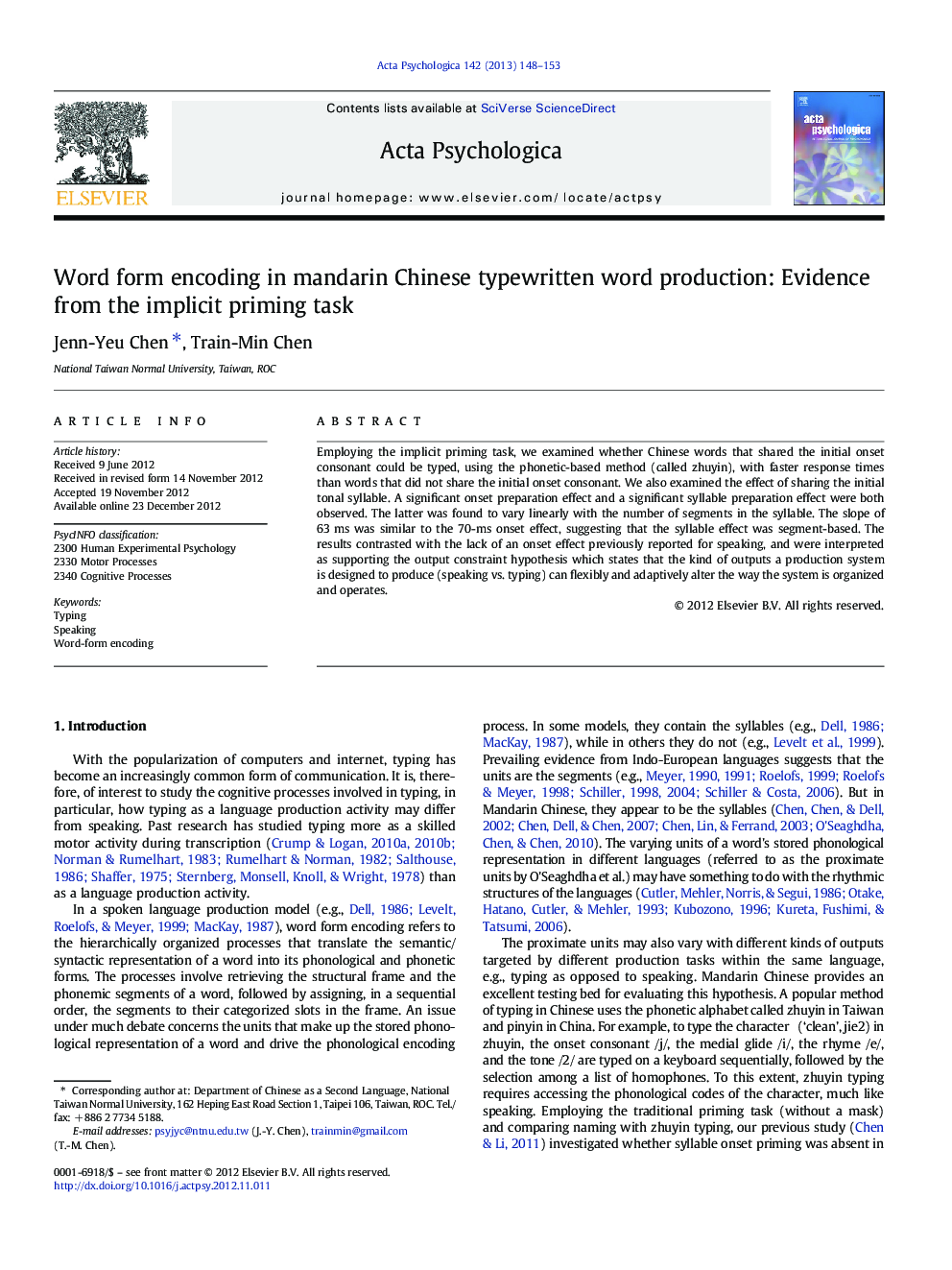| Article ID | Journal | Published Year | Pages | File Type |
|---|---|---|---|---|
| 919947 | Acta Psychologica | 2013 | 6 Pages |
Employing the implicit priming task, we examined whether Chinese words that shared the initial onset consonant could be typed, using the phonetic-based method (called zhuyin), with faster response times than words that did not share the initial onset consonant. We also examined the effect of sharing the initial tonal syllable. A significant onset preparation effect and a significant syllable preparation effect were both observed. The latter was found to vary linearly with the number of segments in the syllable. The slope of 63 ms was similar to the 70-ms onset effect, suggesting that the syllable effect was segment-based. The results contrasted with the lack of an onset effect previously reported for speaking, and were interpreted as supporting the output constraint hypothesis which states that the kind of outputs a production system is designed to produce (speaking vs. typing) can flexibly and adaptively alter the way the system is organized and operates.
► The form of outputs determines how a production system is organized. ► In Chinese, the functional unit of production is different for speaking and typing. ► Speaking is syllable-based while typing appears to be segment-based. ► There was a syllable, but not segment, preparation effect in speaking. ► There was a segment, but not syllable, preparation effect in typing.
